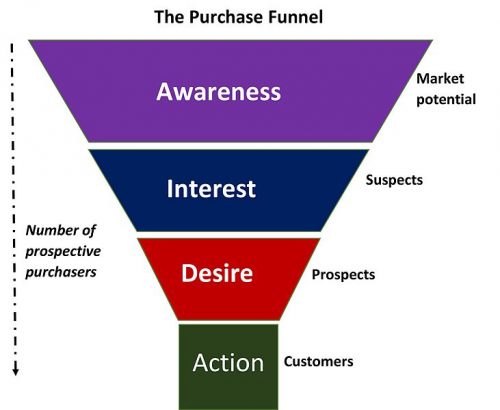
Generalizing is always wrong, but we cannot deny the fact that there are groups of people that are less likely to buy online than the others. Some discriminating factors can be:
Age
Kids or early teenagers are too young to own a credit card, and they cannot buy anything online. (They can be annoying influencers, but you cannot consider them as buyers all the time!) On the other hand, the internet is becoming more accessible to anyone, and it spreads among all age groups — that’s true. However, it is more likely to sell something to a 30-year-old man than to an older person in their 80s.
“It is difficult for today’s parents to teach delayed gratification especially because we live in an instant gratification world where children are bombarded by marketers as early as age one,” writes David J Bredehoft Ph.D.
Nationality/Culture
Nationality or culture matters. People from certain countries, despite good internet infiltration, are less likely to buy than others. Some reasons might be practical (high importation taxes or low usage of credit cards) or cultural (language skills, cultural prejudices, preference for a live “see, touch and buy” approach, fear of online scams, etc.)
Hobbies and Passions and Interests

Every one of us has hobbies and passions, and that often involves buying things (online or offline). Some of these interests, though they are more expensive or simply more related to purchase than others. Not all people with passions or hobbies are good potential online buyers. Think about the difference between a group of golfers or jokers. They both have passions, but who is more likely to buy something online?
There’s no group of people that you should avoid by definition. They all have needs, and they all buy things offline or online. As an affiliate, you want to maximize your results and minimize your efforts. Thus, do not forget to target your promotions only to active “buyers” with related products that suit their needs, expectations, interests, or desires.
Buyers Are Not Always In That Mode
Now that we know that some categories of people are more likely to buy online than others, we have to be aware that online buyers are not always set in “buy mode.” For instance, when they are online to work (e.g., writing relevant emails on outlook) or to chat with friends (e.g., gossiping on Facebook), they are probably not willing to buy anything even though they have all the intrinsic characteristics of right potential buyers.
“Industry relies heavily on persuading us all to do what they want. But then the vast majority of us walk around not thinking that applies to us,” writes Nathan A Heflick Ph.D.
Therefore, when preparing your campaign, it is essential to understand who the buyers are. You should also know when the right time is to interact with them to maximize your results. Keep in mind that people are not all high potential online buyers, and buyers do not live in buy mode all the time. Now it is time to become psychologists and understand precisely the mental processes behind this “buy mode.”
Customer-Buying Process
The path that leads an online user to purchase on the web is usually a multi-step process that involves different phases and different marketing channels.

- Awareness
- Consideration
- Intent
- Decision/Purchase
- Repurchase
“Across age, gender, religiosity, different educational background, political affiliations, and countries, people still believe that the choices they make are their own and that those choices are under their own conscious control. This challenges the messaging that might be promoted more widely in the media,” writes Magda Osman, Ph.D.
Final Thoughts
The role of these channels may vary from market to market. For example, if we consider the travel industry, social networks are more effective in creating awareness. Conversely, direct marketing is more useful when we are close to the decision to purchase.
Think about everything mentioned above before you start promoting your products or services.
Cheers!
